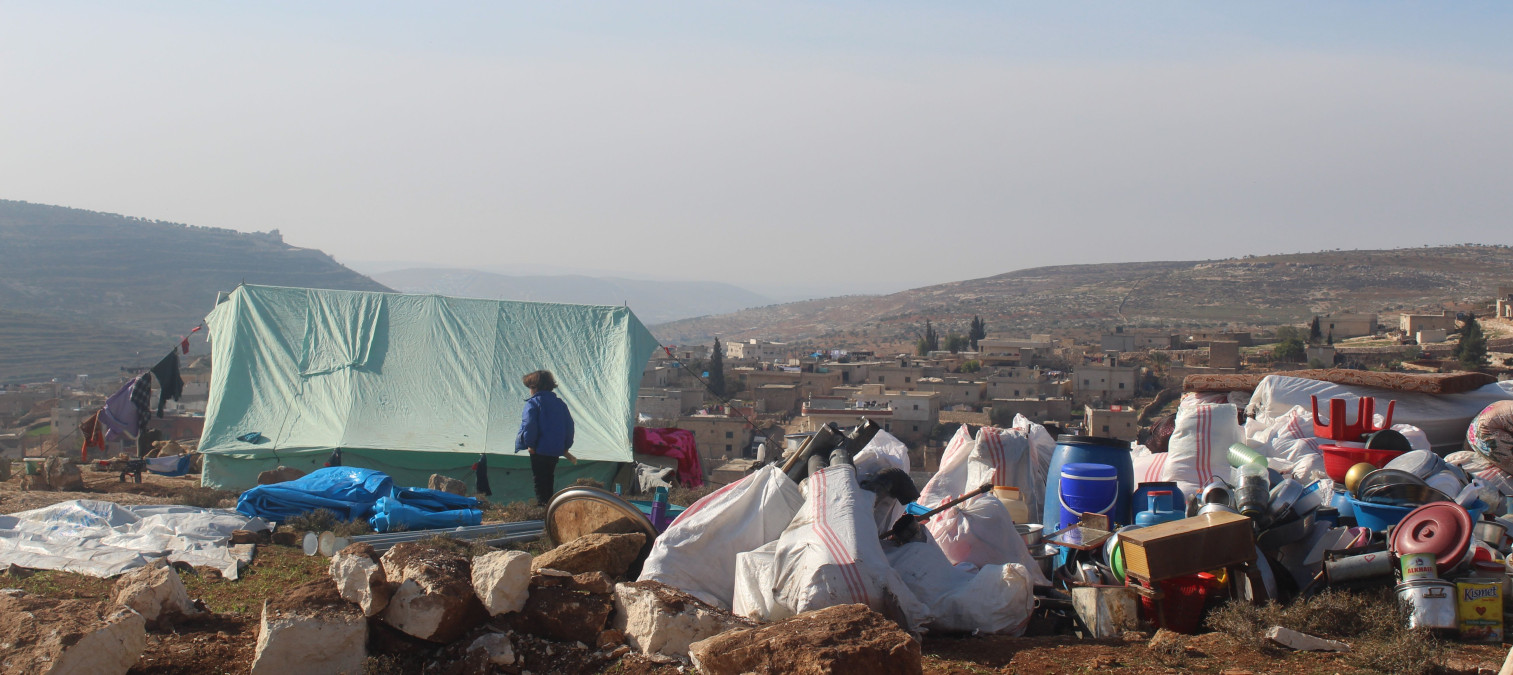Escalation of fighting in Idlib forces hundreds of thousands of people to flee their homes
Published: Jan 16, 2018 Reading time: 3 minutes Share: Share an article“We lost everything,” said father-of-nine, Ahmad, to People in Need. Ahmad had to travel more than 100 kilometres from his home village in Idlib province towards the Turkish border in order to escape heavy clashes between pro-Government troops and opposition forces. Ahmad’s village has been heavily bombed during recent weeks. Afraid for his family, but having nowhere to go, Ahmad decided to leave anyway. He had no car, so had to pay 85 000 SYP (almost 200 USD) to rent a vehicle to take his family, animals and some of their belongings to a safer place.

“The trip was tiring and difficult. It’s cold and rainy. We brought a tent and fortunately, we managed to find a small piece of land close to the border with Turkey where we can put it up for free. My brothers and cousins don’t have tents, so we have to share one between our several families. We also had to rent an extra piece of land to build a shelter for our animals,” Ahmad tells People in Need.
Escaping the violence in South Idlib many families are heading to old camps, like Atma, first. However, capacities of these camps, which were established at the beginning of the war back in 2011, are overstretched and they cannot take in newcomers. With nowhere else to go, families like Ahmad’s are putting up tents anywhere they can. Unlike Ahmad, however, those without tents are sleeping in the streets under the open sky. Living out in the open can turn life threatening as temperatures drop below zero.
Inside Ahmad’s tent, living conditions for him and his extended family are desperate. Clothes, pieces of furniture and several carpets are scattered around the tent; there is no toilet or shower in sight.
What makes Ahmad’s situation even more difficult is the little pasture available in the area for his sheep. “We managed to bring our animals, but there is no place for them to graze and the price of meat has fallen dramatically. I also invested lots of money in buying wheat seeds and fertilizer, but because of the airstrikes we have no chance to go back and harvest the crops,” explains Ahmad.
Ahmad recalls how the situation in his village was stable for years: “We used to farm land and herd animals; the children were going to school. Everything about our lives has changed in the last month. I don’t think we will be able to go back,” he adds.
Despite the fact that during the Astana talks Idlib province was designated as a “de-escalation zone,” an area in which a cessation of hostilities between pro-Government and opposition forces should be upheld and access by aid organizations should be permitted, fighting and airstrikes nevertheless intensified in December 2017 and hundreds of thousands of people were forced to flee their homes. Those who fled from South Idlib are in urgent need of food, water, medicine, shelter and money. Due to ongoing fighting, aid organizations are currently unable to access South Idlib and address the needs of those who remain.
Since 2011, the war in Syria has displaced 6.1. million people and forced 5.5 million more to seek refuge in other countries. 13.1 million people inside Syria are currently in need of humanitarian aid, almost 3 million of whom are trapped in besieged and hard-to-reach areas. We continue to demand that all parties to the conflict cease and prevent attacks on civilians and civilian infrastructure and allow humanitarian aid to safely reach those in need.









